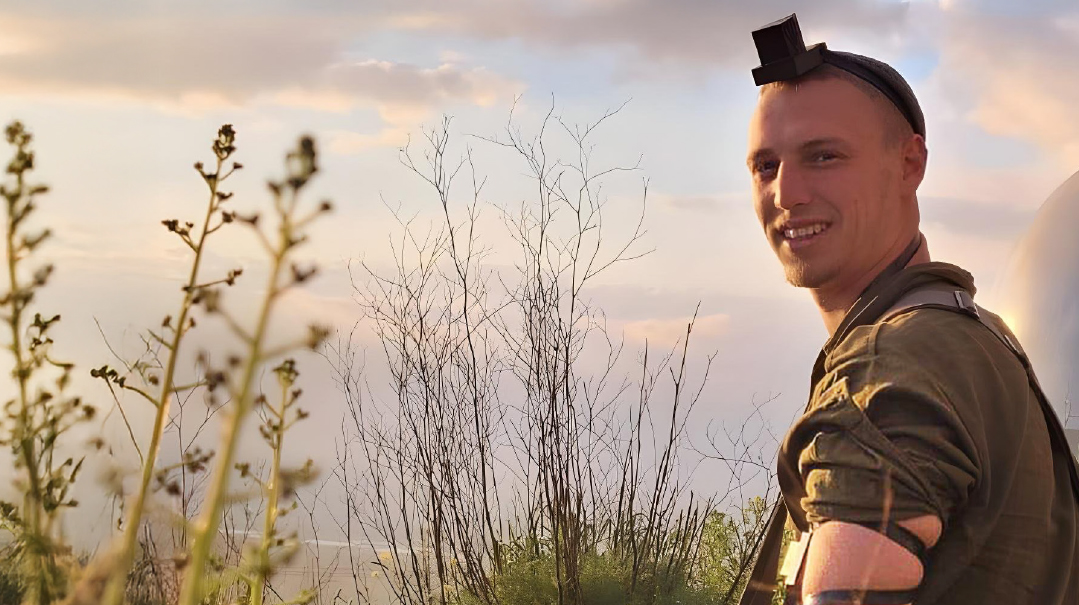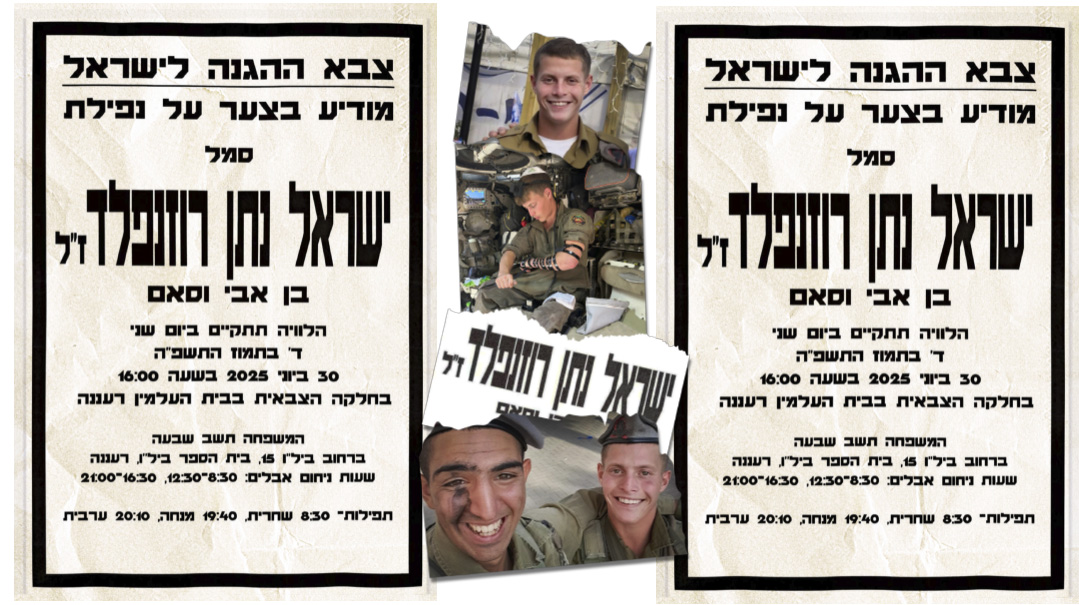Hotel Away from Home
| December 3, 2024It’s hard. Even the friendliest hotel is not home

It’s nearly 14 months into the war and 14-year-old Noa N.* is still living a life many of us would find unimaginable. Instead of enjoying her family’s comfortable Kiryat Shmona apartment, she’s been camping out in a hotel room. “In a way, I’m lucky,” Noa says — her Jerusalem hotel is in the luxury class — but living this way is tough for the pretty, dark-haired teenager, who shares a single room with her parents and three sisters.
“At first, I cried a lot, mostly at night,” says Noa. “I think about my home every day. I miss my friends and my family,” she says. Few of Noa’s Kiryat Shmona friends, many of whom she has known since kindergarten, are at her hotel. Still, she feels thankful to have made new friends.
Like most of the evacuees, the N.’s have tried to turn their room into a home, adding plants and pictures. Still, it’s not the same.
“There’s no quiet here,” says Noa’s mother, Efrat, 41. Efrat, Noa, and the other evacuees hang out in the lobby, where there is a constant din. And even doing something as simple as making an omelet is impossible. “Not being able to cook our own food is hard,” says Efrat. On Thursdays, the hotel allows them to prepare Shabbos food in its kitchen, but there is no kitchen in their room. Instead, evacuees are given three meals daily.
Keeping their clothing clean is a project. As is the case in most hotels, the N.’s must make an appointment to use the shared washer and dryer. “That’s an improvement over the early weeks, when volunteers did the wash and it could take a week until it was brought back,” says Arye Dobuler, a Jerusalem social media manager who has been volunteering with evacuees since the start of the war.
And there’s the issue of size and space. While the hotel provides weekly housekeeping, the rest of the time, the family must be hypervigilant to keep their belongings from scattering through their tiny room.
It’s hard. Even the friendliest hotel is not home. There’s no living room, nor is there an outdoor play space for the kids. Because of that, most of the younger families have left, preferring apartment living, even though that means that they bear full responsibility for cooking and housekeeping.
Ever hopeful, Efrat sees a silver lining. “My daughters have developed socially, and our family grew closer,” she says. The N.’s are blessed in this regard. Many other evacuees struggle to get along with each other in cramped quarters. “Still, it’s not a situation I would have chosen.”
NoaÕs family is among 253,000 Israelis who had to leave their homes following the events of October 7. Today, most southern Israelis have returned home or resettled elsewhere, but for the 62,000 who hail from the towns along the northern border, homecoming feels like an increasingly distant dream.
“The hardest thing is the uncertainty,” says evacuee and activist Refael Salab. “The evacuee has lost everything. He has no home, no ground beneath his feet. He doesn’t know when he will be able to go home. He doesn’t know if his home even exists.” The local security squad sends the evacuees pictures from home, but even many intact houses have significant damage. Times of Israel estimates that three-quarters of all houses in the north are currently unlivable.
For kids and teens, displacement has hit especially hard. They’ve had to start in new schools on top of the loss of their homes — a complete upheaval in their young lives. Noa N. changed schools three times until she found one that worked for her. Many teens still have not found a new place.
“It’s a lost generation,” says Salab. “Evacuated youth stay out late getting drunk at parties.” According to figures presented to the Knesset’s education committee, at least 1,000 evacuated youth are now officially classified as being at risk.
It’s not surprising that the displacement has led to an uptick in mental illness. “There is definitely depression. I see people taking crazy amounts of pills, other kinds of substance abuse, everything that goes along with the terrible situation — from divorce to abuse,” says Arye Dobuler.
Early on, evacuees were too traumatized to leave their rooms, says Dobuler. “They thought that if they went out, they would be slaughtered.” Dobuler supplied basic items that the hotels weren’t providing, such as health and personal hygiene supplies.
He also began a unique mental health initiative called the Teddy Bear Hug Tour, which brings giant teddy bears to evacuees. “The bears are a therapeutic tool that allows opening up and sharing. Kids love the bears, but so do the adults.” Dobuler has seen adults sitting for a half hour, holding the bears. “They talk about their childhoods, their homes, and what they hope to do when they return.”
“It’s not simple to live like this,” says evacuee Ronit K., 54. She has struggled with severe depression since she left the North. Ronit mourns the loss of her old life, her friends scattered in different locations. What hurts most is the distance from her grandchildren, who were her neighbors in the North and have now been evacuated elsewhere. “I had a grandson a week before the war. I barely see him,” she says glumly.
Still, Ronit is grateful for the evacuation. “If the government hadn’t evacuated us, we would have experienced an October 7, too. It was a miracle from Hashem that they didn’t succeed in getting to the North.” She’s guardedly optimistic. “I am expecting hard times, but I believe we will be able to go home.”
Dobuler hears similar predictions from the evacuees he works with. “I’ve heard multiple times that as much as they want to go home, they want to go home when the job is done,” he says.
There is one bright spot for the displaced: The tsunami of help that evacuees continue to receive from Jews all over the globe. “There is a huge desire to help that is unique to Am Yisrael. Hundreds and millions of dollars and shekels. An unbelievable amount of time and effort to bring things to evacuees,” says Dobuler.
Sadly, some of this help is misdirected. Dobuler recalls an offer he received from a US synagogue who wanted to donate 150 handmade quilts. “I refused because I didn’t have a single request for a handmade quilt. The evacuees live in tiny places. They don’t have room for extra things. Giving is about the person getting.” Dobuler points to a request he got from the mother of a special needs child for manah chamah (instant noodle soup). “The kid had gotten bored with the repetitive hotel meals. I got twenty manot chamot and it was great.”
Another ray of light is the increase in faith and religious observance.
“Everyone says, ‘We need to daven more to get stronger,’ ” says Rabbi Yisrael Azoulay, himself an evacuee living at the Cassia, who delivers shiurim to his fellow evacuees. At Rav Azoulay’s classes, dozens of evacuees have experienced their first serious taste of Torah learning, finishing volumes of halachic works and masechtos of Gemara. The Rav also holds monthly yahrtzeit commemorations for talmidei chachamim with good food, song, learning, and storytelling.
“These events give us hope and joy in our hearts. In this balagan, there are good things.”
(Originally featured in Family First, Issue 921)
Oops! We could not locate your form.







